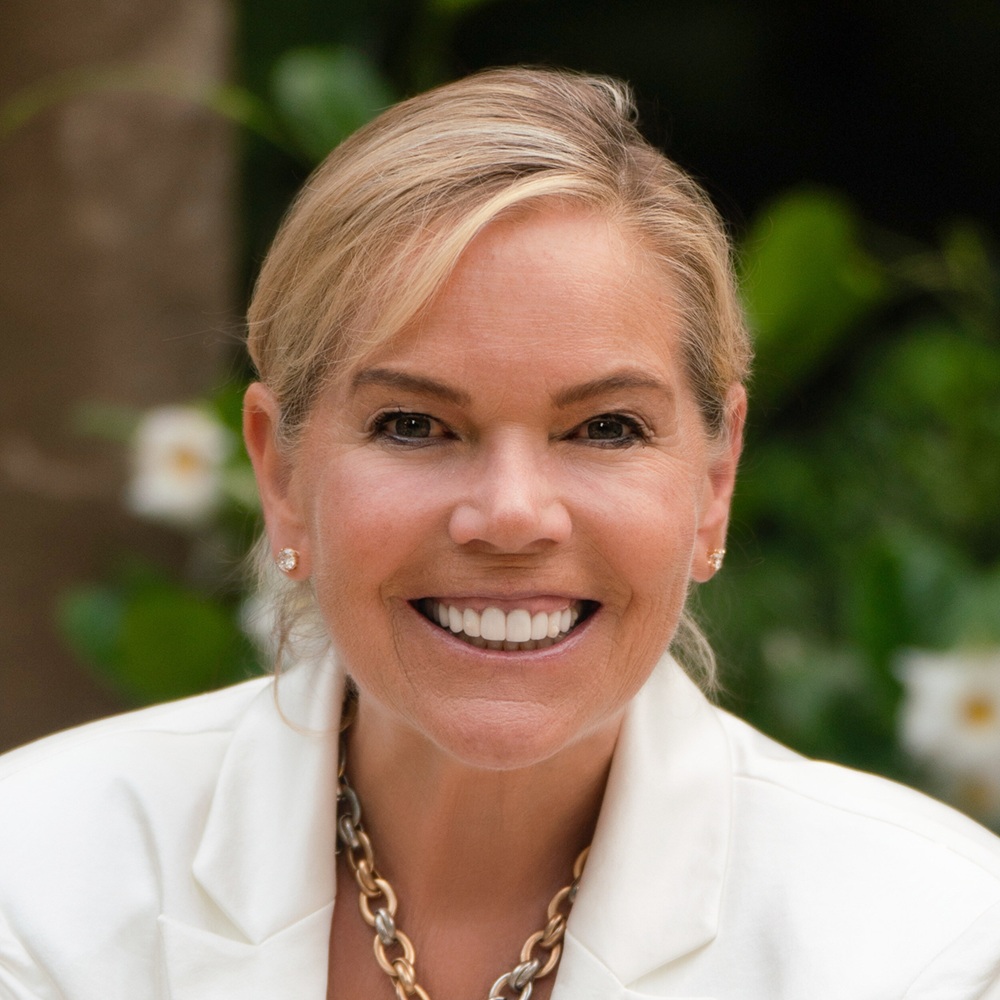Separating the Pros From the Pretenders: This Is How to Tell if You Have a Great Adviser
Do you leave meetings with your financial adviser feeling as though you've been bulldozed into decisions or you're unsure of what you're paying for? Here's how to take control.


Profit and prosper with the best of Kiplinger's advice on investing, taxes, retirement, personal finance and much more. Delivered daily. Enter your email in the box and click Sign Me Up.
You are now subscribed
Your newsletter sign-up was successful
Want to add more newsletters?
Ever sit through a meeting with your financial adviser and wonder afterward, "Did that really help me?"
Now imagine the opposite — you leave feeling lighter, clearer and confident about what comes next. That's what happens when an adviser meeting actually works.
Too many people leave adviser meetings with a tidy report but no real clarity on whether they're on track financially — or paying for the right kind of help.
From just $107.88 $24.99 for Kiplinger Personal Finance
Become a smarter, better informed investor. Subscribe from just $107.88 $24.99, plus get up to 4 Special Issues

Sign up for Kiplinger’s Free Newsletters
Profit and prosper with the best of expert advice on investing, taxes, retirement, personal finance and more - straight to your e-mail.
Profit and prosper with the best of expert advice - straight to your e-mail.
The best meetings aren't about beating the market; they're about trust, measuring real progress and adapting as life changes.
Kiplinger's Adviser Intel, formerly known as Building Wealth, is a curated network of trusted financial professionals who share expert insights on wealth building and preservation. Contributors, including fiduciary financial planners, wealth managers, CEOs and attorneys, provide actionable advice about retirement planning, estate planning, tax strategies and more. Experts are invited to contribute and do not pay to be included, so you can trust their advice is honest and valuable.
The key is having the confidence to ask your adviser some direct questions. Here's what those meetings sound like when that happens.
1. Ask your adviser how they're measuring your success
Start with the big picture: How does your adviser define progress? Try asking, "How are you measuring my success? What value do you think you're adding to my life?"
A good adviser will focus on your goals — peace of mind, confidence about retirement, helping family or simplifying your financial life — not just investment returns.
But this is also your cue to define success for yourself. Say it out loud: "Here's what success looks like to me." Maybe it's knowing you can retire at 67 without worrying about cash flow. Maybe it's helping your kids buy their first home or ensuring your surviving spouse never has to worry.
When both you and your adviser share the same definition, every meeting becomes more productive and personal.
2. Be direct about fees and value
You can't get value if you don't know what you're paying for. Say it plainly: "Can we review exactly what I'm paying and how I'm getting my money's worth?"
A fiduciary, fee-only adviser should welcome that question. They should be able to point to specific ways they've saved you money or simplified your financial life — reducing investment costs, optimizing taxes or keeping your plan steady through volatile markets. Transparency is the foundation of trust.
3. Stress-test your plan
The most revealing moments in a client-adviser meeting come when the client says, "I'm worried about outliving my money." That one sentence opens the door to real planning.
Ask to see what happens if markets drop 20% early in retirement, or if you live to age 100. A strong adviser will model those scenarios, showing you the trade-offs and guardrails in your plan. The weaker ones just say, "You'll be fine."
4. Use meetings to realign, not just review
Before each meeting, think about what's changed since the last one — maybe you started a new job, inherited money or are helping a parent. Then start the conversation this way: "What's changed since our last meeting that might affect my plan?"
Looking for expert tips to grow and preserve your wealth? Sign up for Adviser Intel (formerly known as Building Wealth), our free, twice-weekly newsletter.
That question turns a routine review into a real discussion. Your adviser should help you adjust strategy, rebalance priorities and anticipate what's next. The best meetings are collaborative and forward-looking, not just performance check-ins.
5. Push for plain English
If you can't repeat your adviser's explanation in one clear sentence that makes sense to you, it's not your fault — it's theirs. You have every right to stop and say, "Can you explain that again in simpler terms?"
Good advisers pride themselves on clarity. Jargon and buzzwords are red flags. You should leave each meeting understanding your plan better than before, not feeling more confused.
6. Prepare to be challenged, but not steamrolled
Every adviser has a philosophy, whether it's passive investing, active management or something in between. The key is alignment. Ask, "Can you walk me through your overall philosophy and how that applies to me?"
A great adviser listens first, respects your comfort level and explains how their approach supports your goals. You want someone who challenges your thinking without bulldozing your preferences. If you feel dismissed or pressured, that's your cue to move on.
The bottom line
Here's the question that tells you everything you need to know: "When circumstances change — whether that's my job or health, my goals or the markets — how will you help me adapt my plan?"
The answer reveals whether your adviser is a true fiduciary partner who's ready to guide you through change, or just a portfolio manager focused on the next quarter.
Great adviser meetings aren't about hand-holding or jargon. They're about collaboration and seeing your financial life as a living plan that evolves.
When you know what to ask and when to push for clarity, you'll always walk away feeling like the expert on your own life. And if you ever wonder whether your adviser is truly on your side, ask the simplest question of all: "Are you a fiduciary 100% of the time for every client?"
The answer to that one question separates the professionals from the pretenders.
Related Content
- Are Investment Fees Putting Your Retirement at Risk?
- 11 Questions to Ask When Choosing a Fiduciary Adviser
- I'm a Personal Finance Expert: People Are Asking if Financial Advice Is Worth $8,000
- Should I Pay a Financial Adviser an Assets Under Management Fee?
- How Her Financial Adviser Changed Her Life
Profit and prosper with the best of Kiplinger's advice on investing, taxes, retirement, personal finance and much more. Delivered daily. Enter your email in the box and click Sign Me Up.

With more than 25 years in investor advocacy, Pam Krueger is the founder and CEO of Wealthramp, an SEC-registered adviser matching platform that connects consumers with rigorously vetted and qualified fee-only financial advisers. She is also the creator and co-host of the award-winning MoneyTrack investor-education TV series, seen nationally on PBS, and Friends Talk Money podcast.
-
 Big Nvidia Numbers Take Down the Nasdaq: Stock Market Today
Big Nvidia Numbers Take Down the Nasdaq: Stock Market TodayMarkets are struggling to make sense of what the AI revolution means across sectors and industries, and up and down the market-cap scale.
-
 How Medicare Advantage Costs Taxpayers — and Retirees
How Medicare Advantage Costs Taxpayers — and RetireesWith private insurers set to receive $1.2 trillion in excess payments by 2036, retirees may soon face a reckoning over costs and coverage.
-
 3 Smart Ways to Spend Your Retirement Tax Refund
3 Smart Ways to Spend Your Retirement Tax RefundRetirement Taxes With the new "senior bonus" hitting bank accounts this tax season, your retirement refund may be higher than usual. Here's how to reinvest those funds for a financially efficient 2026.
-
 Big Nvidia Numbers Take Down the Nasdaq: Stock Market Today
Big Nvidia Numbers Take Down the Nasdaq: Stock Market TodayMarkets are struggling to make sense of what the AI revolution means across sectors and industries, and up and down the market-cap scale.
-
 3 Smart Ways to Spend Your Retirement Tax Refund
3 Smart Ways to Spend Your Retirement Tax RefundRetirement Taxes With the new "senior bonus" hitting bank accounts this tax season, your retirement refund may be higher than usual. Here's how to reinvest those funds for a financially efficient 2026.
-
 Trump's New Retirement Plan: What You Need to Know
Trump's New Retirement Plan: What You Need to KnowPresident Trump's State of the Union address touched upon several topics, including a new retirement plan for Americans. Here's how it might work.
-
 Buy and Hold … or Buy and Hope? It's Time for a Better Retirement Planning Strategy
Buy and Hold … or Buy and Hope? It's Time for a Better Retirement Planning StrategyOnce you're retired, your focus should shift from maximum growth to strategic preservation and purposeful planning to help safeguard your wealth.
-
 Your Legacy Is More Than Your Money: How to Plan for Values, Not Just Valuables
Your Legacy Is More Than Your Money: How to Plan for Values, Not Just ValuablesLegacy planning integrates your values and stories with legal and tax strategies to ensure your influence benefits loved ones and good causes after you're gone.
-
 Will Real Estate and Private Equity Start to Shine Again in 2026?
Will Real Estate and Private Equity Start to Shine Again in 2026?Real estate, private equity and general partner stakes could benefit from future interest rate cuts. What are the risks and rewards of investing in each?
-
 Nasdaq Soars Ahead of Nvidia Earnings: Stock Market Today
Nasdaq Soars Ahead of Nvidia Earnings: Stock Market TodayWednesday's risk-on session was sparked by strong gains in tech stocks and several crypto-related names.
-
 4 High-End Experiences Worth the Splurge After 50
4 High-End Experiences Worth the Splurge After 50These curated date ideas provide the perfect backdrop for couples ready to enjoy the very best that the world has to offer.